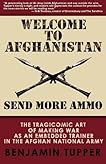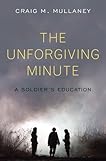[Originally written for the Pittsburgh Symphony Orchestra: Outside Perspective]
I've told my students that they need to learn how to ask questions about other people's work, because if they stay in our field, they will always be entering someone else's territory. For all their skills and all they bring, they will always be entering someone else's environment, someone else's situation, someone else's world. And when that is the case, the first steps are to prove to the other person that you are paying attention to them. While you can ignore the guy on the ground if you happen to have authority behind you, you can get a lot further if the guy on the ground is convinced you are working for their interests.
I enjoy classical music because of its abstractions. And that so many have chosen to take the challenge of actually communicating something within the abstractions and creating works with such range. So I look upon pieces like Danielpour's collaboration with Maya Angelou with a somewhat skeptical eye. Is it forcing something that does not need to be forced? Or is it that the music could not stand on its own, and needed to vocals to give focus that could not be done otherwise? (we already know that Angelou's poetry can stand on its own)
In the event, I confess I was barely listening to the words. I was listening to music of orchestra and voice. And hearing the hope of youth to the melancholy of age. To a combination of music and words, that seemed to do all right even without the words.

